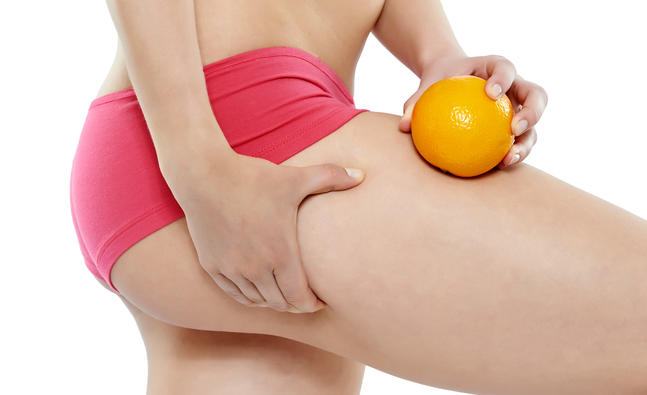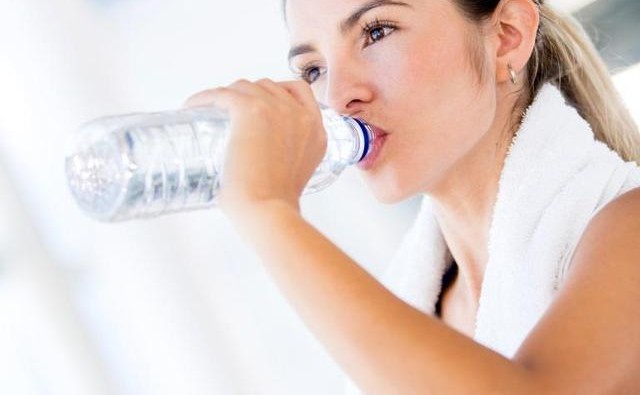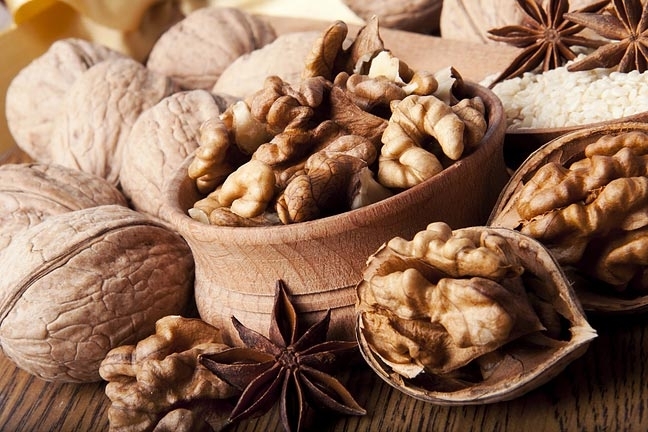The 25 WORST Diet Tips Ever
This article was written by Stephanie Castillo and repurposed with permission from Prevention.
You know you can't believe everything you read. And still, you haven't eaten an egg yolk since the nineties, and you can't touch a French fry without being saddled with guilt. Oh, and don't even get us started on the whole don't-eat-after-8-p.m.-or-else mentality. Let's set the record straight once and for all by calling out these 25 worst diet tips—and offering up smart food rules to follow instead.
Fat Makes You Fat
It depends on the type of fats you're eating, says Tricia Psota, R.D., a nutritionist based in Washington D.C. "Fats in chips, cookies, and greasy foods can increase cholesterol and your risk for certain diseases. But good fats, like those found in nuts, avocados, and salmon, protect your heart and support your overall health." And when paired with a healthy diet, the right fats can help keep you from being, well, fat, adds Sharon Palmer, R.D., author of The Plant-Powered Diet. (Check out this list of the best fats you should be eating.)
Stop Snacking to Lose Weight
Eating in small, frequent amounts is a great way to curb hunger, control portion sizes, and make better nutritional choices, says Mike Clancy, a personal trainer at David Barton's Gym in New York City. "Smarter snacks like nuts, fruits, and yogurt will keep your energy levels high throughout the day." (Need proof? Our 400 Calorie Fix plan—which involves three or four meals plus snacks—can help you lose 11 pounds in just two weeks!)
Count Every Single Calorie the Same
"Not all calories are the same," says Clancy. "The type of calories, the timing of the calories, and the quality of the calories can significantly alter the effect of the calories on the body," he says. "Food creates reactions within our bodies and the type of food you eat is an important component in diets."
For example, 50 calories of an apple will cause a different internal reaction than 50 calories of cheesecake, says Clancy. "The quality of the calories is also important because the chemicals, hormones, and general byproducts that are found within processed food effects the absorption of real nutrients." Quality calories are nutrient dense, like spinach. Calories that don't contain any nutrients—also known as "empty" calories—are like the ones found in French fries.
Bottom line: Calories are important for understanding portion control, but they’re not the only factor in good nutrition, says Clancy.
Cut Out Carbs
The research on carbohydrate intake is often misinterpreted, says Chrissy Carroll, R.D., founder of Inspired Wellness Solutions, LLC. "Yes, it is true that excessive intakes of refined carbohydrates, like white bread or white rice, may lead to weight gain or increased cardiovascular risk," she says. "But there is no research suggesting that healthy carbohydrates, such as whole grains, fruits, vegetables, or legumes, can negatively impact health or weight. On the contrary, many studies suggest a diet high in these plant-based foods is associated with better overall health."
Case in point: A 2002 American College of Nutrition study that found replacing refined grains with whole-grain and minimally-processed grain products—along with increasing the intake of fruits and veggies—can help lower dietary glycemic load and insulin demand. This, in turn, can ultimately reduce the risk of both type 2 diabetes and heart disease, says Kristin Kirkpatrick, R.D., manager of wellness nutrition services for the Cleveland Clinic Wellness Institute.
So, keep the carbs! And aim for those that come from 100 percent whole grains or fruits, adds Kirkpatrick.
Load Up on Protein
Sorry, caveman lovers: eating lots of protein is not the key to healthy weight loss. Why? The body needs three macronutrients: Protein, carbohydrates, and fat, says nutritionist Rania Batayneh, author of The One One One Diet. And focusing exclusively on protein for weight loss makes no sense. "You not only deprive your body of fiber and other antioxidants found in healthy carbohydrates—whole grains, fruits, and veggies—but you also run the risk of eating too much fat in your diet which can lead to high cholesterol and triglycerides,” says Batayneh.
Eat Less Gluten
There's no scientific evidence that gluten is a particularly fattening ingredient, says Palmer. "The problem is that we eat too many refined grains—foods made of white flour or other refined grains," she says.
And cutting gluten without checking with your doctor first can lead to deficiencies in important nutrients, such as fiber, iron, vitamin B12, and magnesium, says nutritionist MaryAnne Metzak from Southampton, New York.
In the meantime, focus on getting healthy whole grains in moderate portions. These recipes for baked apple oatmeal and skillet chicken and rice fit the bill.
Exercise On an Empty Stomach
Working out with or without food in your stomach doesn't affect calorie burn—but skipping meals before sweat sessions may result in muscle loss, finds a study published in the Strength and Conditioning Journal. And before you settle for a sports drink, know this: While a quick sip of sugar energizes your muscles, the drink’s other artificial additives can be harmful to your health, says nutritionist Sanda Moldovan, a diplomat of the American Academy of Periodontology.
Instead, go for naturally sweet fruit, like bananas, peaches, and mangos before your sweat session. Or try an ounce of dark chocolate for the same caffeine fix you get from a half cup of coffee. "Chocolate also contains feel-good substances, called neurotransmitters, which are the same release during a 'runner's high,'" says Moldovan.
Eat Every Two Hours
Going four or five (or even eight!) hours between normally-sized meals will not make your metabolism slow down, says nutritionist Monica Reinagel in Baltimore. "Eating more frequently may help stave off hunger, which can help you fight temptation," she says. "But if you want to do this, you have to be careful to keep your meals and snacks really small. Otherwise, eating every two hours can simply lead to taking in too many calories over the course of the day."
Treat Yourself on the Weekends
Throwing caution to the wind on the weekends can offset the consistency and success you had all week, says Batayneh. "On the weekends, we tend to sleep in, maybe missing our workout, typically drink more alcohol, and have heavier meals," she says. "So if you lose about one pound between Monday and Friday, you just might gain it back—or at least maintain it, really taking away the efforts towards weight loss."
Which means if you're trying to lose weight, the weekends shouldn't be a free-for-all. You still need a plan, says Batayneh. Some suggestions: passing on the breadbasket and limiting yourself to one cocktail. (Of course, if it's one of our ridiculously healthy cocktail recipes, we won't tell if you have two.)
Swear Off Foods
"We tend to be in 'all or nothing' mode when we diet and never seem to find a middle ground," says Batayneh. "You have to realize that you can’t have pizza, French fries, and chocolate cake all in the same day," she says. "But with careful planning, you can enjoy these foods when they are presented to you. Just don’t go for seconds, and share if you can." In fact, research shows that moderately indulging in "forbidden foods" is what keeps people from bingeing on the stuff.
Skip Breakfast
This backfires, says Carroll. "People end up overeating at lunch and dinner, often in excess of what they 'saved' at breakfast," she says. "In fact, research on individuals who have successfully lost weight shows that they regularly eat a healthy breakfast." Better if it's high in protein, according to this study published in the American Journal Of Clinical Nutrition.
Detox Often
"Your digestive system, kidneys, and liver are all actually fairly amazing at 'detoxing' your body on a regular basis," says Carroll. "There's no need for special cleanses or juices." (Plus, it's miserable! See what happens when one of our editors gave a detox a whirl.)
Only Eat Raw Food
"Many studies show that cooking method—heating, grilling, and microwaving, etc.—makes a nutritional difference," says Kirkpatrick. "So while some food may be best eaten raw, that's not the case for all foods."
Oh, and if the whole myth about "negative calories" (you know, the dubious idea that just the act of eating certain foods burns more calories then you actually take in from those foods) draws you to raw foods, think again. "Some foods do require more energy to digest than others, but to live on these so called 'negative calorie foods' results in unsustainable weight loss and can also slow your metabolism down, as well as break down muscle," says Batayneh.
Chew Mint Gum to Cut Cravings
Not to burst your bubble, but the lingering taste of mint can actually reduce the palatability of healthy food, finds researchers from the University of Buffalo. That means that when you spit the gum out and go for a snack, that candy bar's likely to look—and taste—a lot more appealing than a carrot.
Drink Skim Milk
"The reality is that dairy contains fat, and interestingly, some recent studies from Harvard have found positive attributes of high-quality saturated dairy fat," says Prevention advisor Ashley Koff, R.D. "My two cents on 2 percent? Keep it." Removing all the fat changes the hormonal effects dairy has on the body and can make you struggle to feel full, adds Koff. (Plus, why pass on these 25 tasty twists on yogurt?)
Don't Eat Meat
Yes, a study in the Journal of the American Medical Association's Internal Medicine suggests that vegetarians may live longer, but the idea you should cut out red meat is a little misguided. "Beef is a healthy and convenient protein that contains iron," says Batayneh. "The problem is when you eat it with bacon, cheese, and onion rings."
A better bet: lean, grass-fed meat. It's pricier than regular beef, but the health perks—vitamin E and omega-3 fatty acids—make it worth the splurge. And try to limit yourself to small portions twice a week, says Batayneh. You want to leave room for other animal and vegetarian protein sources, such as chicken, fish, beans, lentils, chia seeds, and avocados.
Click HERE to see 17 more do-not-try diet tips from Prevention.
More from Prevention:
10 Calorie-Burning Myths, Busted
6 Eating Rules For Faster Weight Loss
15 Terrible Snacks For Weight Loss
-
2 Surprising things that may drop calories
-
Slim your thighs and reduce cellulite this spring
-
Perseverance key to weight loss
-
The FDA Just Approved a Weight Loss Device that Sucks Food Out of Your Stomach
There’s a new weight-loss procedure on the market that’s c
-
Fight snack attacks throughout the day
-
7 Ways to Lose Weight This Holiday Season
All the festive cocktails, holiday parties, and gingerbread houses can
- DON'T MISS
- Best Weight Loss Clinics /Centers In India – Our Top 10 Picks
- Passionate kisses burn calories
- 5 Ways to Eliminate Back Fat
- 10 Simple Dances To Help You Lose Weight Easily
- Whats wrong with fast weight loss?
- How to turn your diet into an everyday habit
- 5 Super Easy Dinners That’ll Help You Lose 5 Pounds
- How to stop sitting so much during the day
- 6 Foods to Avoid Before You Hit the Beach
- Make weight loss your priority, not your resolution




